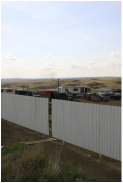 This past weekend in church, one of the readings was Romans 8.12-25. In it, I saw something new that I had never seen before even though it is a passage I have read and heard countless times during my life. It may even be one of those that I might even be able to recite part of from memory. It is curious to me how these things happen. Now Christians explain this as the Holy Spirit illuminating the scriptures. Which I do believe happens, however anyone who spends enough time with a text has the possibility to read it with “new eyes”. All those things that we encounter in our lives between the readings come into play and activate in our most recent reading to suggest the possibility of new depths of or alternate meanings. Whatever it is, I appreciate the new ideas and possibilities. So here is the passage: 12So then, brothers and sisters, we are debtors, not to the flesh, to live according to the flesh— 13for if you live according to the flesh, you will die; but if by the Spirit you put to death the deeds of the body, you will live. 14For all who are led by the Spirit of God are children of God. 15For you did not receive a spirit of slavery to fall back into fear, but you have received a spirit of adoption. When we cry, “Abba! Father!” 16it is that very Spirit bearing witness with our spirit that we are children of God, 17and if children, then heirs, heirs of God and joint heirs with Christ—if, in fact, we suffer with him so that we may also be glorified with him. 18I consider that the sufferings of this present time are not worth comparing with the glory about to be revealed to us. 19For the creation waits with eager longing for the revealing of the children of God; 20for the creation was subjected to futility, not of its own will but by the will of the one who subjected it, in hope 21that the creation itself will be set free from its bondage to decay and will obtain the freedom of the glory of the children of God. 22We know that the whole creation has been groaning in labor pains until now; 23and not only the creation, but we ourselves, who have the first fruits of the Spirit, groan inwardly while we wait for adoption, the redemption of our bodies. 24For in hope we were saved. Now hope that is seen is not hope. For who hopes for what is seen? 25But if we hope for what we do not see, we wait for it with patience. I think, looking back on it now, I likely read this passage in a way was about human struggles and the hope that comes from faith in spite of current circumstances. Now, without looking, Paul is writing to encourage and teach those living in Rome dealing with a pretty crappy situation struggling under persecution. This is all pretty standard. What was new for me is how creation is bound up with humanity in this struggle. Look at verse 19-23 again. Creation awaits salvation too! It languishes awaiting its freedom. Again, looking back on it, that I think I conflated humanity as part of creation, which it is, but verse 23 articulates an important rhetorical distinction (23and not only the creation, but we ourselves). This distinction that Paul sets between humanity and creation is an important one. We see, that creation suffers awaiting the same freedom from bondage that humanity awaits. This was an unbelievable thought. Over the recent years, with my interest in place and shifting theological emphases, I’ve come to think more about the relationship between humanity and the earth very differently. Often, for a variety of long held philosophical reasons firmly rooted in Protestant thought, the physical is diminished in favor of the spiritual. The logic goes that since “we” will fly away from this physical earth, it is of no real lasting significance. Tragically, the position of caretaker from Genesis becomes one of dominance and misuse rendering it a disposable reality to be mined for all its worth to fuel our economies. As I think about this further, this action only amplifies the groaning. Perhaps what has allowed this idea to emerge is my recent time in the oil fields of North Dakota. At the beginning of this month, I spent 2 solid days, driving through some of the most beautiful landscape of North Dakota which has now become a sprawling oil field. Land is being drastically reshaped, gouged, drilled, drug, and about any other manner of soil movement you might consider. I cannot help but to see the groaning of the earth around me when I drive out there. While the Psalms retell the laments of those who cried out, “How long?” I fear this is the cry of the earth as well?
0 Comments
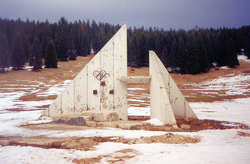 I will admit it...I am a fan of the Olypics...both summer and winter. My first memories of the Olympics were the 1984 summer games in LA. I remember watching boxing, Zola Budd run Mary Decker Slaney off the track and of course Mary Lou Retton. I remember the 84 winter games in Sarajevo. Somehow these games in particular deeply formed my fondness for the Olympics. I remember thinking it was such a beautiful place. I lamented the Bosnian war because of those memories of the 84 games and my memories of that place. (The image above shows a bit of the damage the war caused to many of the sites of the games.) Today, I saw on Facebook a link to an article about the ruin that has become many of the venues from the Beijing Olympics in 2008. Take a look at the images here. This is heartbreaking to me. Not just because abandoment is always has a sad element to it, but because of the sheer cost of it to people of China. What do our ethics of place suggest about these ruins? Certainly the Olympics, particularly for China, were about putting on a beautiful face for the world...about showing how modern and advanced they are as a rising superpower. But was it all an act of ideology...propaganda? The way they have left the buildings go would suggest so to me at least. What sickens me, is that leaving the buildings to ruin compounds the monetary cost in a country where there are so many people in poverty. No longer are they a source of pride for a developing nation, they are the signs of a nation's propaganda. After posting the article on my own FB account, a friend wondered if that happened more often. Apprently so. Another friend posted a link to an article about the modern ruins of Greece...the Olympic venues from the 2004 games. This article was from 2010 but already mentions the economic collapse of the country and the inability to maintain or advance the sites as had originally been hoped for. If we view the Olympics through a lens of place and economics, what comes from those investigations? While the country does make an increase in revenue for the weeks before, during, and after the games, but should a nation host the games if it is unable to maintain the venues it charges its citizens for? Are these sites, like most other commodities, simply disposable after their period of use has passed? I dont know, but these thoughts will be in the back of my mind as I watch the games with a little less enjoyment this year. 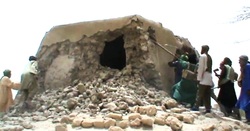 Read Story here. I hate stories like this. As someone who is deeply concerned about place, its role in peoples lives and beliefs, regardless of religion, this makes me deeply distressed. I suspect because I see these places not only in their religious and cultural sense, but also in an artistic, architectural, aesthetic sense as well. I simply do not understand the desire to destroy a work of art or religious site...regardless of religion. I do not know much about these sites, or how strictly they follow the legends, but their destruction will cause disorientation and confusion in their belief system...I suppose that is what Al-Qaida is after. Sad.  As I said a few weeks ago, it is MFA season here at UND's Hughes Fine Art Center. Last week Meghan Duda presented her work. Influenced by a range of artists from the New Topographics to Gordon Matta-Clark, Meghan's work considers the ubiquity of the suburban home. When Meghan and her husband relocated to Fargo a few years ago, she was struck by the possibility of horizontal expansion has shaped the suburban housing areas of Fargo. Home shapes follow a few rough patterns in theses new developments. And yet Fargo is not alone in that respect. Several of her images come from Utah as well. As someone who shares her interest in the New Topographics, I was immediately struck by (at least what appears to me) a strong lineage with several members of the group, namely Stephen Shore and the Becher's. Her connection to Shore is in subject matter while her connection to the Becher's is in matter of typologies of suburban homes as well as their rigorous system of grids within their installations. Following this method of Becher's typologies, Duda has laser cut the houses from the image thus breaking up the picture plane. By floating the image off the back frame, she is able to accentuate the break and absence with the lighting and shadows. On others, she has used the laser to etch detailed house floor plans over the image. Another one of the key factors in her images is that she also draws upon the objective or sense of detachment so often associated with the group but extends backward strongly to Ed Ruscha. Like the New Topographers, she attempts to stay neutral...balancing between critique and endorsement. Stephen Bloom's recent article in the Atlantic explores his now home of 20 years: Iowa. Apparently his characterizations have caused a lot of controversy in Iowa that he is now "hiding" elsewhere after his wife received an anti-Semitic comment. While several of Blooms comments are blatantly over the top generalizations, they still hit close to home. To close at times to my own home in Northwest Iowa. I grew up in Iowa...the first 22 years of my life. Following college I too left the state like so many others my age. I left for South Dakota...not much of a change. Now, I live in North Dakota the other worst state for keeping their educated young folks around. As I said, some of Blooms comments are satire and are just over the top exaggerations. But that said, one does not need to scrape too far to find resonances of with his words and experiences. There no doubt was a culture shock for Bloom when we moved there. But in spite of this Bloom's long time commitment to the U of I and Iowa is remarkable. He has travelled the state widely. He has observed them and knows them well. Perhaps this is why it hurts me even as I have not lived in Iowa for nearly 15 years. It is my home. I know the sky and the dirt. I know the people and their strengths and foibles. There is much that he has correct and I suspect that there are many who would agree were it not for an arrogance and judgment in its delivery. What is frustrating, is that you might say the same things about every state in the Union. Every state has its "things" they are proud of and those they would rather hide. Bloom has used those less savory aspects to imply that Iowa is undeserving of its political prominence. Mr Bloom, while I agree with you on many of your points, I still think you are a dick for saying it as you did. As a rejoinder, enjoy this video. 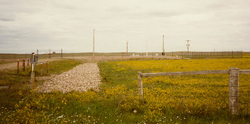 Since I was a child I have had a strange fascination with war. I would ask for picture books and check them out of the library as it was one of the few things I would read about. I had youthful plans of joining the military, but what once was a naïve patriotism has in the past 10 years become soundly checked by a growing theology and pacifism. But while I strongly disagree with war, I am still fascinated by its machinery and history. This summer I had the opportunity to explore a bit further in the beautiful land of our northern neighbor: North Dakota. I had never been much beyond Bismark. But this year brought two trips to Turtle Lake, ND and north through Minot on our journey home. One of the nuggets of knowledge that I grew up knowing was the presence of the nuclear silos across ND. It never really seemed strange to me rather a matter of fact. And yet this summer when we started passing them on the road, they were startling to me. They had been part of my mental understanding of the world but I had never had the opportunity to experience them. What seemed strange was how near they were to the road and family farms. For me, the farm I grew up on is a sacred space and I would imagine that for many in my wife’s family, the homestead is sacred as well. And yet, the missile silo just down the road for them has become a common place. To my pacifist leanings, something like that in my “backyard” would qualify a profane space. A profane space I was still attracted to and would jump at the chance to tour and explore if I had the opportunity. What are we to do with place like this that really can serve little good? Should we consider them as profane because of what is housed in the ground? or because of what it represents? or has the potential to do? If this place is profane, can it be redeemed? And then how? |
Ryan StanderArchives
January 2018
Categories
All
|
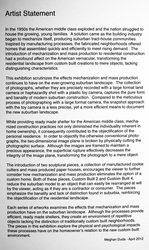
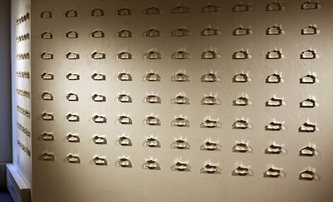
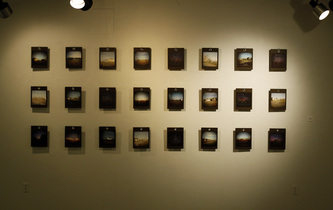
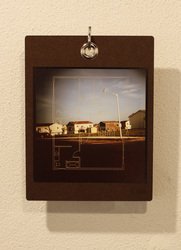
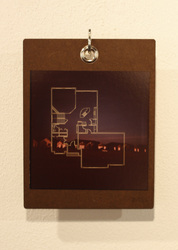
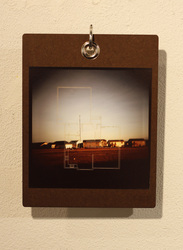
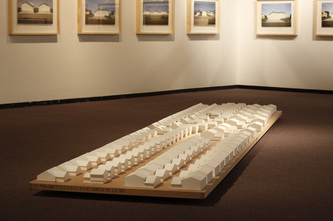


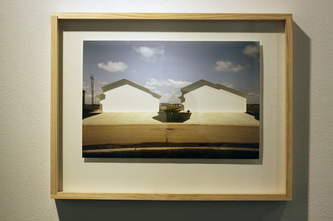
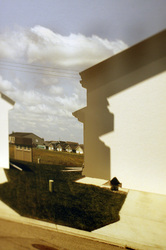
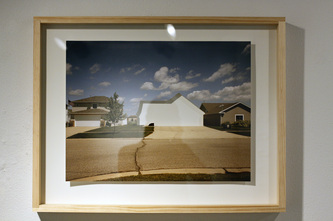
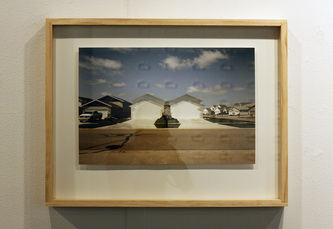
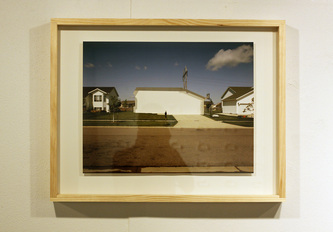
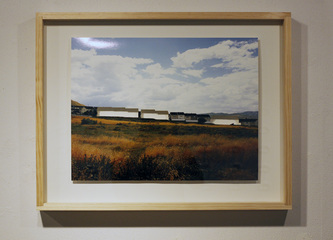
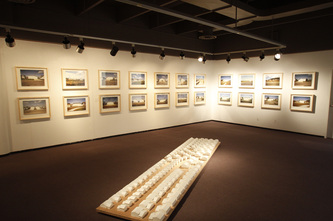

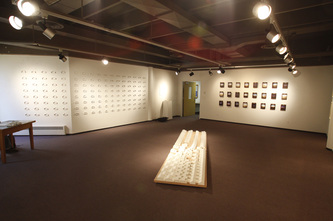

 RSS Feed
RSS Feed
